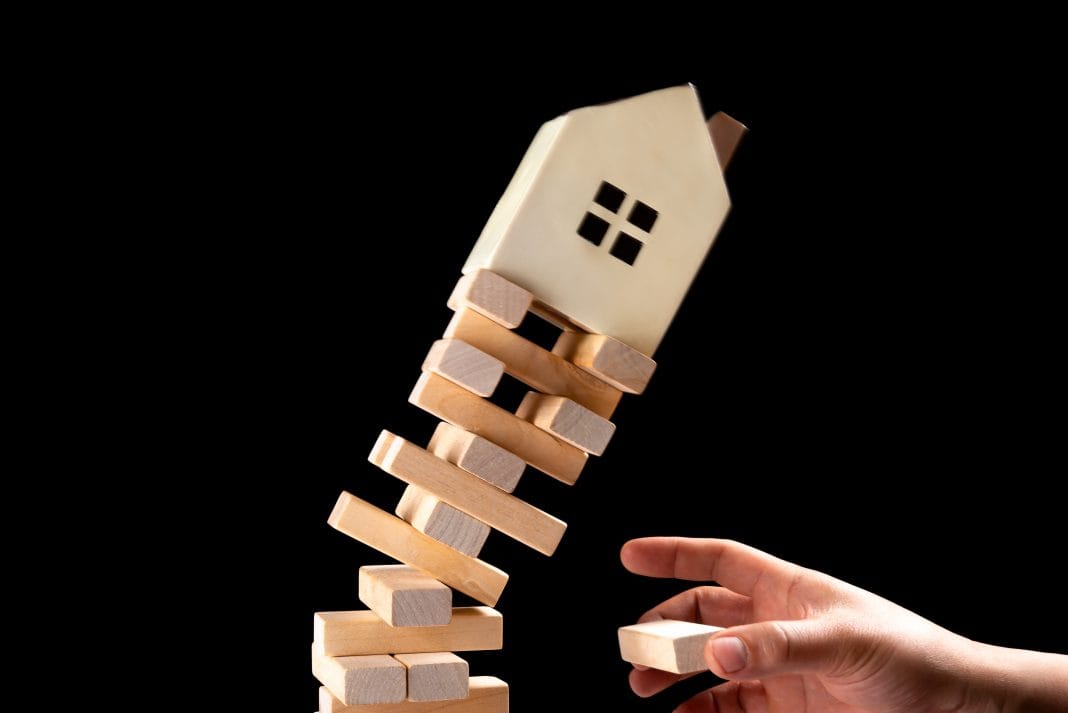A property expert believes the worst may now be behind us!
A research briefing by the consultancy Oxford Economics defines a housing crash as a 10% peak-to-trough fall in prices. As prices have already fallen this far since the highs seen following the introduction of the stamp duty holiday, the question of whether we are on the brink of a housing crash, or if it has already happened, has been posed.
Dominik Lipnicki (pictured), director of Your Mortgage Decisions, believes the year ahead looks stable in terms of house prices, however he has not entirely ruled out further declines.
Housing crash – stability
Lipnicki said, "unsurprisingly, following on from rising inflation as well as higher mortgage costs, we have seen some downward house price adjustment. The correction, however, has been very modest; I think that when it comes to prices, the year ahead looks quite stable and the worst may well be behind us. What the pandemic and the war in the Ukraine have taught us is that drastic and unforeseen events can change everything and very quickly, hence why he believes there must always be a caveat to any predictions being made. There are many signs that when it comes to inflation, the worse may well be behind us and while financial pain will still be felt by many and for a long time to come, the shortage of homes and mortgage rates, which have fallen from their recent peak, mean that demand is still likely to be there."
Stability is returning to the market, and Lipnicki said, "the Bank of England is talking in much milder terms when it comes to base rate rises, with most in agreement that we are at, or near, the peak now and this bodes well for the cost of mortgages, hence his expectations for stable house prices this year. To many borrowers used to the sub 2% rates of the past, the current 4% might seem high; historically, however, this is still cheap money, and he believes that mortgage rates are also now stabilising, which is welcome news when compared to what we witnessed following the mini budget. Indeed, we have seen a real fall in mortgage rates since Q4 2022 - this is to be welcomed, but recent swap rate increases may suggest that we will not see many further falls any time soon.”
Housing crash – future reductions to be minor
Lipnicki said, "that while the worst of the housing crash is likely behind the market, he believes current house prices may still fall a little further over the course of the year, although he expects any reductions to be minor. For those hoping for a price rebound later in the year, or in 2024, this is also unlikely due to the cost of borrowing, and while inflation might fall, many will still be poorer. Recent, sizeable increases in rents, together with the cost-of-living crisis, have depleted potential borrowers’ savings, which would have been used for deposits. The government can, of course, affect the market by making changes to stamp duty or taxation, and time will tell if further help will be provided to those wanting to buy a home. Having a stable housing market is not a bad thing - indeed, he believes huge increases over a prolonged period of time are really unhealthy and risks boom/bust cycles. If property prices end up where they were pre-pandemic, for most, that would be totally acceptable, especially when compared to what we experienced in the 2008/2009 economic crush."
PRS will drop £224bn in value if ‘accidental landlords’ leave
If amateur or accidental landlords are eradicated from the private rented sector (PRS), there would be 383,600 fewer homes to rent – and £223.5bn would be wiped from the value of the PRS market, research reveals. The findings from specialist property lending experts, Octane Capital, suggest that a string of legislative changes could lead to that scenario.
The firm says that the PRS in the UK currently accounts for 18.8% of all dwellings – or 5.6m homes. There are 2.74m landlords and each landlord owns an average of just over two properties.
PRS is ‘on the brink of a significant decline’
However, the lender says that the PRS is ‘on the brink of a significant decline‘ because the government has introduced a string of legislative changes rather than tackle the country’s housing crisis head on. It says that the government’s tactic has led landlords from being deterred from buy-to-let investment because profit margins have been impacted. And this drop in profits has hit the amateur landlord hit hardest, the firm says.
It warns that an estimated 14% of the sector are ‘amateur landlords’ who own just one rental property. This equates to 383,600 landlords – the same number of privately rented homes.
What the impact will be on the rental market?
And if they should leave, Octane is asking what the impact will be on the rental market?
It says that the number of homes to rent would drop by 14% and since the average price for a BTL property is £285,915 means the PRS’s market value would take a £223.5bn hit in one fell swoop. Jonathan Samuels, the chief executive of Octane Capital, said,"In recent years, the UK government has looked to eradicate the amateur landlord via a string of legislative changes, designed to dent profit margins in order to help address the shortage of stock within the sales market.”
‘The answer is to build more homes’
He continued: “Firstly, this is not a practical or reasonable solution when really the answer is to build more homes. Secondly, in doing so, it’s the nation’s tenants who are paying the price, with a shortage in stock only driving the cost of renting ever higher. Should amateur landlords cease to exist, it would further reduce PRS stock levels by a significant amount and only exacerbate the problem further.”

